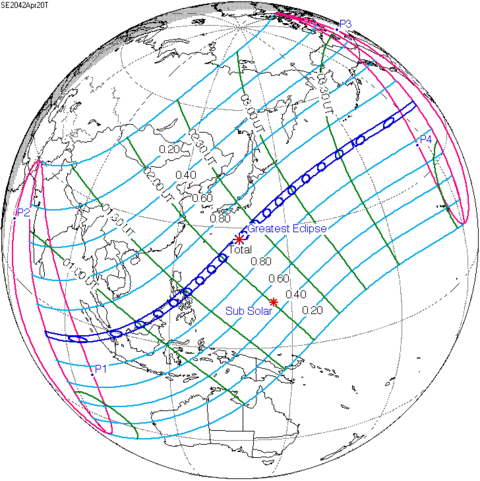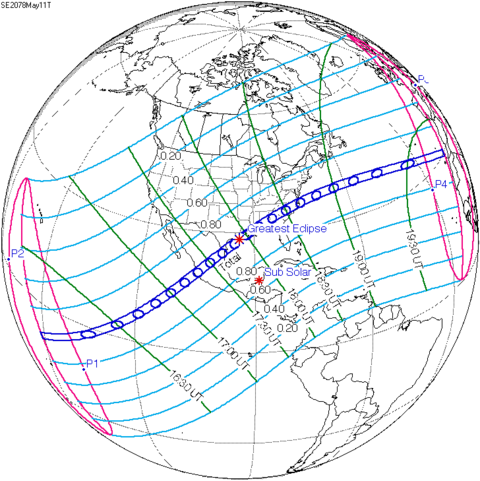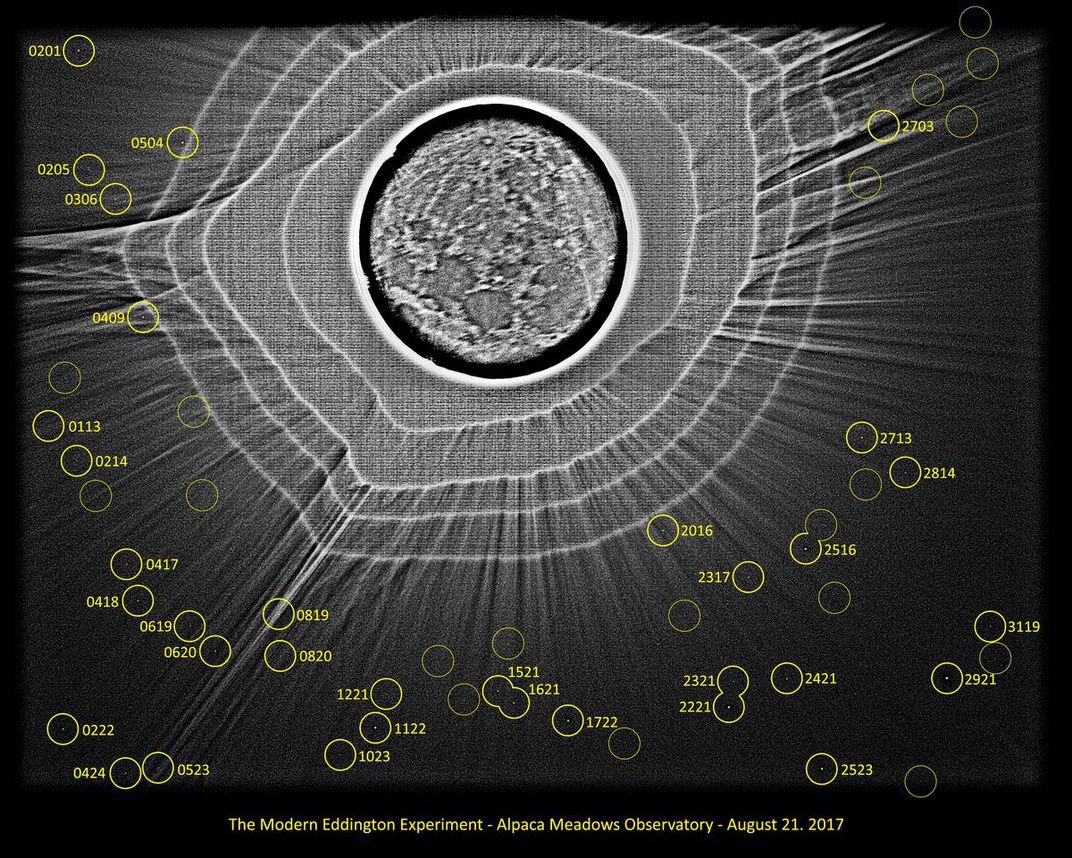THE SOUTHWORTH PLANETARIUM
207-780-4249 www.usm.maine.edu/planet
70 Falmouth Street Portland, Maine 04103
43.6667° N 70.2667° W
Altitude: 10 feet below sea level
Founded January 1970
Julian Date: 2459319.18
2020-2021: CXII
THE DAILY ASTRONOMER
Thursday, April 15, 2021
Exploratorium XLII: Solar Eclipse Questions
Heavens above!
We certainly aren't the only ones giddy with glee over the 2024 solar eclipse. Yesterday's article elicited quite a few responses and, naturally, questions. Although we've been a bit question-happy this week, we decided to address this latest batch of queries straight away. After all, the April 8, 2024 solar eclipse is now just 1094 days away: a veritable eye-blink by cosmic standards.
Because of the Saros cycle, if we miss the 2024 eclipse, will we only have to wait 18 years to see the next one here? -L.W.
Excellent question!
First, we'll explain that successive eclipses within a given Saros Cycle are separated by 18 years, 11 days and 8 hours. The next Saros 139 solar eclipse following the April 8, 2024 event will occur on April 20, 2042. However, because of that "8 hours," that eclipse will be located 1/3 the way around the globe:
The eclipse on 20 April, 2042, the next Saros 139 solar eclipse following the 8 April 2024 event, will be an Asian/Australian event.
The next Saros 139 solar eclipse occurs on April 30, 2060 and will be visible in parts of Africa, Europe and western Asia. The following Saros 139 event will happen on May 11, 2078. As we can see from the graphic below, that one will also be visible in North America:
Although the totality path will be different from that of the April 8, 2024 eclipse, the May 11, 2078 event will be the next Saros solar eclipse visible in North America. The period of three Saros Cycles is called an Exeligmos. Successive saros eclipses that are visible in the same region of the world are separated by one exeligmos, a period equalling 54 years and 33 days.
Will I need eye protection to watch the total solar eclipse?
-J.L.
Yes. You will need eye protection to watch the eclipse's progress. However, you won't need protection to view the eclipse during totality. HOWEVER, if you are observing the Sun during a total eclipse without eye protection, be SURE to look away just before totality ends. If you don't, you will be looking directly at a sliver of sunlight which could prove injurious. For this reason, when you do observe the eclipse, be certain that you know the precise timing, which will vary from location to location.
Will the stars be visible during the total solar eclipse?
-Jack. H
Yes, they will. One will see the stars and nearby planets during totality. During the April 8, 2024 eclipse, the Sun will be in the constellation Pisces the fish.
During the eclipse one will see the planets Mercury (very faint), Venus, Mars and Jupiter. Saturn will have already set by the time totality begins.
Sir Arthur Eddington led an expedition to observe the sky during a total solar eclipse in 1919. He was able to photograph the stars surrounding the eclipsed Sun and from the positions of the stars verified that starlight was affected by the Sun's gravitational field. This observation provided the first piece of corroborating evidence of support of Einstein's General Theory of Relativity.
Will you be holding a special event at the planetarium?
-J.O .
We will certainly have a special event, but we will be traveling up to the north or west so as to be within the totality path. Unfortunately, this eclipse will not be total in Portland. Our hope is to be where the action is. That brings us neatly to the last question.
Any idea what the weather will be like? April in Maine tends to be a bit inclement.
-S.L.
No idea. Astronomers can predict planet positions with certainty over centuries. Meteorologists deal with far more elements and so their predictive powers are limited. Yes, April in Maine tends to be very unsettled. Unfortunately, there is no way we can know the weather until just before the eclipse.
To subscribe or unsubscribe from the Daily Astronomer:



